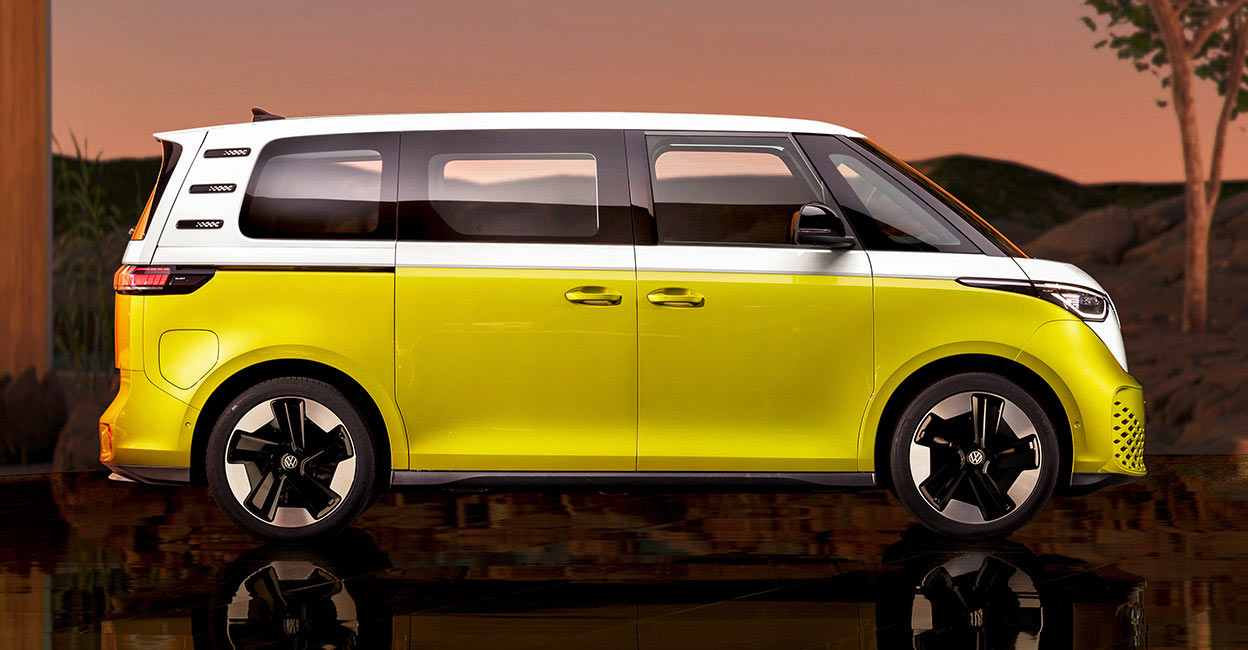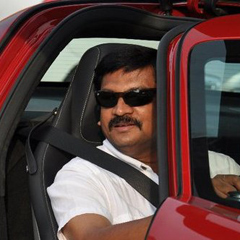ID Buzz: The electric, retro microbus from Volkswagen

An epitome of practicality, one would find it difficult to take eyes off the ID Buzz, which is set for launch next year.
An epitome of practicality, one would find it difficult to take eyes off the ID Buzz, which is set for launch next year.
An epitome of practicality, one would find it difficult to take eyes off the ID Buzz, which is set for launch next year.
What is the most anticipated electric vehicle? If you think it is a Tesla, a BYD, a Saic Motor, a Great Wall Motor, a Nissan or a Toyota, you are wrong. It is a bus from Germany – the Volkswagen ID Buzz.
Though there is a 'bus' in the name, it is actually a small family vehicle of the size of an MPV or a big car. An epitome of practicality, one would find it difficult to take eyes off the ID Buzz, which is set for launch next year.

Will India get it?
Will it come to India? Can it come even as a CBU? In case of a CBU, the price would shoot up, and would be out of reach for most auto enthusiasts but they could at least admire its beauty seeing rich, influential and environment-conscious celebrities travelling in it. Even if we can’t own one, there could be some joy in seeing it on the roads at least.
If it is fully imported, the cost could touch nearly Rs 1 crore. If Volkswagen goes for a make-in-India adventure, the price tag could come down by at least 50%. Anyways, if such exciting vehicles do not get launched here, what would sustain our love for automobiles? Aren't we tired of seeing same type of cars and hatchbacks masquerading as SUVs?
The old and new
The T1 bus took birth in a Germany that as growing after the World War II. It was then known as Buzz, Kombi Van, Bully and Transporter. It was based on the T platform of the Beetle and had its engine in the rear like the iconic bug. Launched in 1949, the T1 came to be known as Type 2 (Type 1 was Beetle itself). It was produced till 1967. The next T2 model was made till 1979 and it officially marked the end of the production of the original Volkswagen van. That is because the T3 that got launched later using the Beetle platform had no similarities with the bug on the design front.
However, it retained the air-cooled, rear engine layout and was made until 1992. After that, the Beetle platform was junked. And the van continued as a normal van.
Hippie bus
Thought it was born in Germany, the bus became more popular in the US. It was known as Hippie Bus since it had become part of the hippie culture of the US. It even pushed to the sidelines local manufacturers like Ford, Chevrolet, and Dodge and achieved a cult status, courtesy the hippies.
Hippie culture
It was the time the 'counterculture' movement against the establishment shook the US in the 1960s. The American dream found new definitions. Human rights, racism, women's empowerment and authority were all questioned, and redefined. The invasion of Vietnam was questioned. This was an act that could have easily been termed as treason but instead became popular. The counterculture was overwhelmingly a youth movement and gave birth to new thoughts and lifestyles.
The rebel hippies
The hippie culture that took birth in San Francisco in 1967 was in fact a lifestyle. It was a mixture of a distinctive lifestyle, sexuality, clothes, music, arts and drugs. And the Type 2 vans became one of the many symbols of their culture. They became attached to the vehicle because it could facilitate their city hopping, could accommodate their musical instruments and other objects, offer more seats than cars and had enough space that helped them spend nights inside the bus. Eventually, the hippie culture and its bellbottom pants and colourful shirts came to an end, but the vans were in demand for some more time.
The new bus
The new bus has no hangovers from the hippie culture. It is a symbol of eco-friendliness, and a new, disciplined lifestyle. The unveiling of the new bus -- ID Buzz – was done recently. By the year end, the ID Buzz will be hitting the European market. There could be different models for the passenger and commercial segments -- ID Buzz for passengers and ID Buzz Cargo for commercial purposes.
New platform
The ID Buzz will be built on Volkswagen group's modular electric drive (MEB) platform. It will be 4,712 mm long, 1,980 mm wide, 1,938 mm tall and sport a wheelbase of 2,988 mm. It features conventionally hinged front doors and sliding doors on either side at the rear. It also sports all features that re required for a modern vehicle. The ID Buzz sits on 20-inch alloy wheels and provides a comfortable journey for five. A seven-seater with a longer wheelbase will come later.
The interior
The interior of the vehicle is just as unique as its exterior. It's a splash of colours -- you could find almost all hues inside. It has quilted cloth seats, headrests, a minimalist dashboard, flat-bottom steering wheel, 5.3-inch digital instrument display, and a 10-inch infotainment system. It has interiors made of recycled and sustainable materials, resulting in the reduction of carbon emission.
One motor for now
Initially, the ID Buzz will have a single motor and rear-wheel drive layout. It will get powerful twin motors and a four-wheel drive set-up later. Though we would like to see the ID Buzz on Indian roads, there is no word yet from Volkswagen, and it is unlikely that it will reach India.

